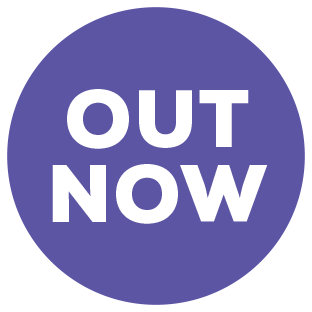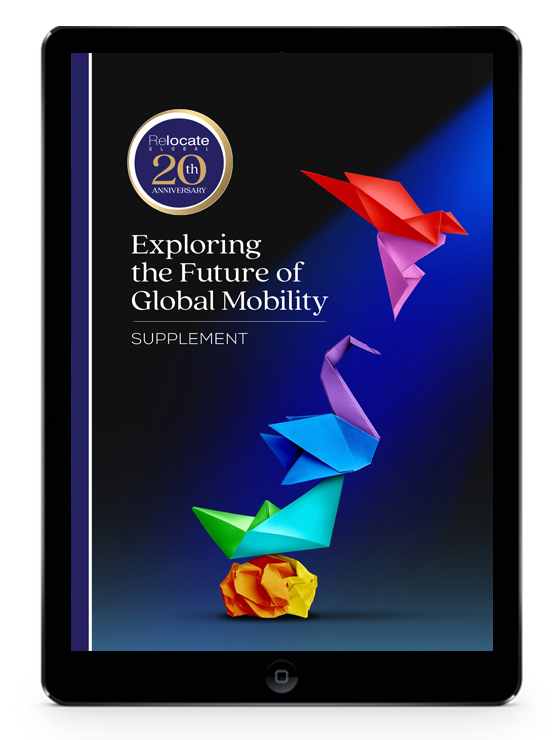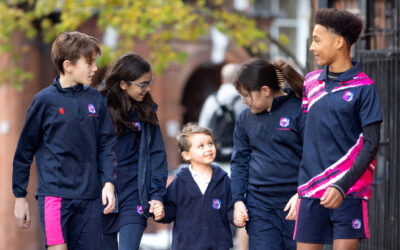A class act: education of the future
Covid turned education on its head and there is a growing movement of educators that feel it’s time for a serious overhaul. They champion a future based less around exams and more on the smart use of AI, project-based learning and hybrid teaching. Sally Robinson reports.
For Melissa McBride, founder of Sophia High School, the Department for Education’s first accredited online school and the disruptEd series of conferences designed to bring changemakers together, the future of education will be hybrid. “Education will not be all online and it won’t be all in person. It will sit somewhere in the middle.”
The change will be driven by two factors, says education consultant Mark Steed: “The acute teacher recruitment crisis and education following changes in wider societal working patterns.” Schools are already looking to alternative methods to cover shortage subjects and there’s a significant pool of teachers who would be willing to work flexibly rather than take on a five-day week contract.
Sophia High, the first online school to be admitted into the Independent Schools Association, delivers the national curriculum to 60 children aged 4–16 in over 30 countries via an innovative project-based learning model, which uses a combination of virtual classrooms, immersive collaborative projects and AI-powered personalisation. The school started life as a private tuition service, but pivoted post-pandemic to provide a full curriculum.
Its students come from a variety of backgrounds. ‘Sophia provides a rigorous DfE-accredited curriculum that students can pick up and go, which is valuable internationally, but it is also beneficial for children for whom the traditional school system is not working,” says Melissa McBride. Some of these are athletes who need a more flexible learning environment and some are school refusers or have anxiety. Everything is recorded, which enables students who didn’t get it the first time to go back and embed their learning.
Some teaching takes place in immersive spaces with headsets where students take on avatars, which McBride says can be a game changer. “When you don’t have a physical campus it’s valuable to create a shared social experience,” she says. The biggest impact has been on the students’ confidence. “There is almost a separation between the self and how you can represent yourself in the immersive space as a safety blanket to practice real-world situations.”
Sophia also has an edtech arm that works with schools globally. “We see our role strategically, helping schools manage this transition towards a future that will increasingly be hybrid,” says McBride. “Sophia High allows us to show the impact with real students.”
Hybrid learning is already gaining pace. Sophia High provides remote teaching for low-demand sixth-form courses at Cognita schools in Spain and in subjects where there is a teacher shortage. Dukes Education, which runs 25 schools and colleges in London and Europe, is launching a hybrid school in September.
Chatsworth Schools will also introduce hybrid learning and new technologies to its existing and new school projects in the UK and internationally, in collaboration with Sophia Technologies.
The hybrid collaboration will roll out from September, initially as a soft launch with Chatsworth Schools’ four UK sixth forms, when students will be offered a selection of online subjects along with in-person teaching.“We are a proudly inclusive school group and we want every one of our children to have the opportunity to learn in the right way for them,” says Chatsworth Schools’ CEO and founder, Anita Gleave. “There are children who have anxiety, others who are elite athletes or musicians and some have parents who move around the world for work. To have continuity and to be able to keep learning the same quality curriculum is really important.”
The hybrid system also benefits staffing. Specialist subjects can be taught online, which is particularly helpful for international schools with multiple campuses. “It also helps us retain teachers who want more balance in their lives and can work from home,” says Gleave.
All change for the curriculum
The physical space where students learn is changing, and so should the curriculum, according to an increasing number of educators. They cite the global teacher crisis, rising levels of absenteeism and the skills required for future jobs as the catalysts for change.
“We need to meet the students where they are at,” says Sophia High’s Melissa McBride. “Global curriculums are still very assessment-driven and this is where we have a disconnect. We’re not preparing children with the skills for the workforce of the future.”
A recent report by a House of Lords Committee on the provision of education for 11-16-year-olds reached the same conclusion, referencing “a narrow set of subjects and teaching styles”. Critical thinking, communication skills and mental flexibility are among the most important skills students need, according to the McKinsey DELTAs, which identify the talent needs of the future workforce. Cognitive skills are in the greatest demand, including mental flexibility, self-awareness, digital fluency, adaptability and coping with uncertainty.
It’s a story echoed by the 2023 World Economic Forum (WEF) ‘Future of Jobs’ report, which identifies the top ten skills needed by employers in the next five years: creative and analytical thinking, leadership and social influence and problem-solving topped the list.
“As educators, if we are not reading this report then we are not doing our job because we don’t know what we are educating for,” says Dr Sarah Watson, vice principal (academic) at DLD College in London. “We need to think about if our curriculum and systems of learning reflect the job market.”
Some independent schools have already changed their curriculum to make it less high-stakes exam-focused. At Bedales in Hampshire, students take five GCSE exams in the core subjects alongside the school’s own externally validated Bedales Assessed Courses. These include digital game design, global awareness, outdoor work, and product and fashion design. The school plans to reduce the number of GCSE exams further to just two subjects, English language and maths.It’s a similar story at Latymer Upper School in London. From 2027, students will take two GCSEs alongside the school’s own courses, such as “world perspectives”, an inter-disciplinary curriculum drawing on geography, politics and economics, which students currently study alongside their GCSE subjects.
The introduction of BTEC qualifications and the IB Diploma’s design and technology qualification also move towards addressing the skills students need by providing more vocational A level-standard qualifications.The curriculum also needs to plug into the areas young people are interested in, reflected in the rise in popularity of esports, a subject that taps into the digitally savvy student body. In 2020 the esports BTEC was introduced and is now studied in over 150 schools. Contrary to popular opinion, it is a business qualification, not a gaming one.
Esports is a huge industry, which will be worth US$1.5bn next year, more than the music and movie industries combined.The course incorporates enterprise and entrepreneurship, legal and ethical issues and logistics. “It’s contemporary, relevant, fun and engaging and in an industry people are crying out for skills for,” says James Fraser-Murison, director of learning at Queen Mary’s College, Hampshire, who wrote part of the syllabus. He is also director of Fraser Esports, which delivers the esports BTEC online.
Collaborative learning
The future is not just about what students learn, but how they learn. DLD College’s Dr Sarah Watson is among a body of respected educators who believes project-based learning is the most effective way to develop skills. It encourages critical thinking, problem solving, communication, collaboration and creativity and allows students to become independent learners.
“Project-based learning is vague and that is absolutely brilliant for preparing an education system when you don’t know what the future looks like,” says Dr Watson. “It can be used as a framework in lots of different contexts.”
Dr Watson also champions the case for an interdisciplinary approach where instead of separating the curriculum into separate subjects, it is based on flexible disciplines that overlap and interact.
“There have not been many world problems that have been solved by one discipline alone,” says Watson, who has introduced an interdisciplinary approach at DLD College. Alongside the traditional subjects, students in Year 9 study a compulsory project-based course in digital futures, combining economics, business, science, media and coding.
Fridays are not timetabled and set aside for the school’s innovative Urban Schools Project. This structured, inquiry-based programme uses the motto “London is our classroom”. Students build their skills by looking at a problem that has arisen from their subject lessons. They work in teams, plan their research methods and test them all over the city. “They have been to the National Theatre looking at sustainable set design and Kew Gardens to look at how and if botany can live on Mars,” says Dr Watson.
Teachers help the students to shape the project, analyse the data and work out where to go next. At the end, they reach a conclusion and review and reflect on their work. “The positive feedback from our students has been very powerful,” says Dr Watson.
Incorporating AI
The noisiest disruptor in education over the past year has been the advent of generative AI. Chat GPT has been around for just over 12 months, providing easy access to generative AI for everybody for the first time and changing the educational landscape.
A report published last month by the DfE, Generative AI in Education: educator and expert views, showed a rapid increase in the number of teachers and students using it. In April 2023, only 17% of primary and secondary teachers had used AI in their roles, but just six months later this had risen to 42%. Students are faster to experiment – with 74% of 16-24-year-olds having used a generative AI tool.
Despite this, only a small percentage of teachers use it every day in their teaching, says Darren Coxon, founder of CoxonAI, which provides advice on using AI in K-12 education.
“Teachers and students have been playing with these tools for the past year, testing their parameters. Now we have reached a collective brick wall where we need to apply the tools to add real value,” he says. “Teachers might be using it for lesson plans, resources or reports, but it is not moving the learning on.”
AI is useful, but it’s not the solution to everything agrees Sophia High’s Melissa McBride. “To use it effectively you still need a high level of language, communication and literacy. Those are fundamental skills for the workplace. AI does not replace that, but it accelerates the opportunity.
”For now, AI works well as a stimulus for creativity and for one-hit explanations, taking complexity and reframing it so students, whatever their level, can understand, says Darren Coxon. “But it has not got to the point where it can guide a student, step by step, questioning them and challenging them, in the way a teacher would. It will get there, but not yet.”
One of the biggest issues is students do not understand how to use AI because they are not being taught. “Going forward, we need to focus on AI literacy: how it works, how it generates content and how to prompt it. That is critically important for teachers and students to learn so they can become responsible users.”
“Students should treat it like an ally that can give them that little bit extra. They may not like or trust it, but they need to understand how it works. If they don’t, they are at a disadvantage because there are kids all over the world who are using it.Where will it take us in future? “Generative AI will get worse before it gets better and we are already seeing that with deep fakes and voice cloning,” says Coxon.
The utopian vision is smaller learning communities where the student sits at the centre and draws on different sources of knowledge including AI, the teacher, and other experts. The student moves from passively consuming knowledge to actively being in control of their learning journey. “AI is a great organising intelligence so will be able to map out and personalise that learning journey,” says Coxon.“AI will work in super intelligent ways in the future. It is inevitable.”
Academic enrichment
The UK’s private schools, including Eton, Canford in Dorset and Marlborough, have their own eco-system of summer programmes, often hosted by commercial operations.
Sevenoaks School, one of the top performing schools in the country, offers its own summer ‘academic enrichment’ course for 11–17 year olds, incorporating four modules: critical thinking, social leadership, creativity and digital skills.
For a fully-rounded experience combining learning, creative enrichment and adventure, ISSOS is one of the longest-running summer school providers. Its three-week residentials take place at St Andrews University in Scotland, Cambridge University and Yale in the US, for students aged 13–18. Places of any one nationality are limited to 10% to guarantee an international experience. “Academic classes are taught by highly qualified teaching staff who are all experienced working professionals in their subject areas and many come back every year,” says marketing manager Caitlin Hanlin.
For an American-style summer camp with a focus on making friends and having fun, Camp Cooper runs one- and two-week camps in Scotland for 7–17 year olds. Campers choose from a range of options including tennis, art, outdoor adventure, tennis and filmmaking.
From film to football – something for everyone
Tech is an increasingly popular focus at summer camps that gives students the chance to learn new skills, such as software design and basic coding, that might not be taught in school.
At Techcamp, courses are designed and run by engineers and students get to take home their custom-built projects. These long-established residential and non-residential courses in Oxford, London and Winchester include coding, engineering, 3D game design, drone racing, Python AI and VR design.
FunTech offers residential and day camps where students can study game coding, cyber security and game design.For students who prefer musical theatre, drama, singing and dance there are some exciting options including West End Stage held at the Guildhall School of Music and Drama, which is led by West End professionals and culminates in a performance at Her Majesty’s Theatre.
The Guildford School of Acting at the University of Surrey summer camps include acting, singing, voice and dance taught by GSA conservatoire tutors. Aspiring filmmakers get to make their own film at the Young Film Academy’s hands-on residential summer camp at Culford School in Suffolk.
Learning or improving a language is one of the traditional reasons for attending a summer school. For an immersive experience the Sorbonne University in Paris offers two-week French courses taught by academics from the university and Malaga University runs four-week intensives in Spanish over the summer. In the UK, UCL offers two-week summer intensive language classes in Arabic, French, Italian, German, Japanese, Mandarin and Spanish.
The Swiss tradition
Switzerland has a tradition of running dynamic, well-organised summer schools, often with an emphasis on team building and outdoor activity. Many are held at the country’s network of elite boarding schools, providing great facilities amid spectacular Alpine scenery. Le Rosey has been running camps for 40 years and provides a mix of sporting, academic and artistic activities at its campuses on Lake Geneva and in the mountains at Gstaad. Brillantmont welcomes students from 30 countries with nationality quotas to ensure diversity. Its programmes include French or English classes in the morning and sports in the afternoon.
At the College du Leman between Lake Geneva and mountains, students devise their own summer programme choosing from languages to business and technology.


 Magazine
Magazine



